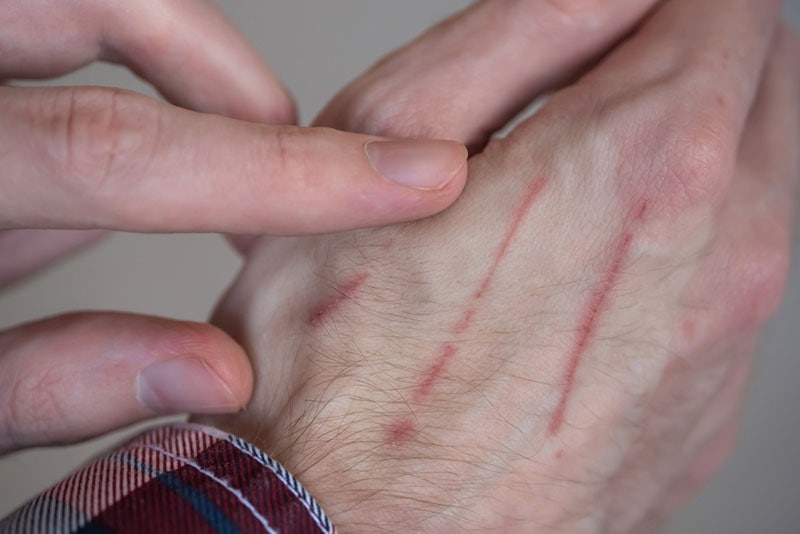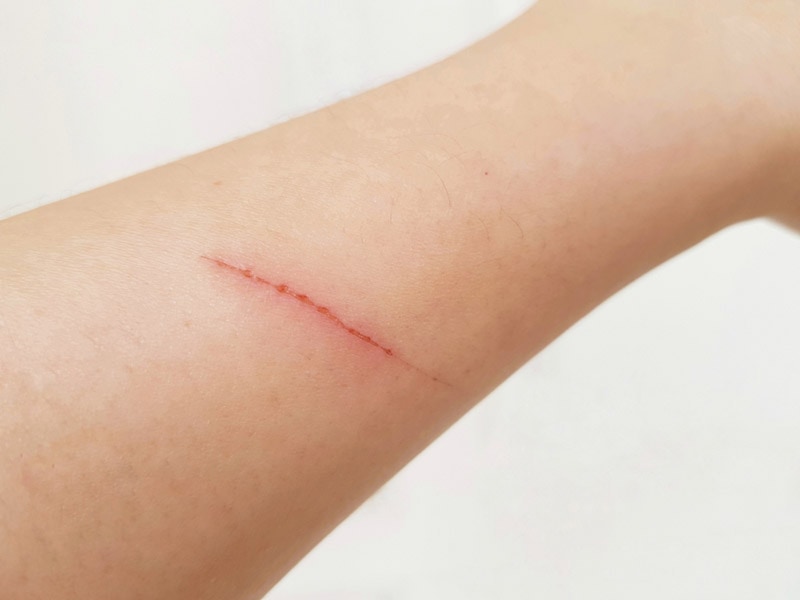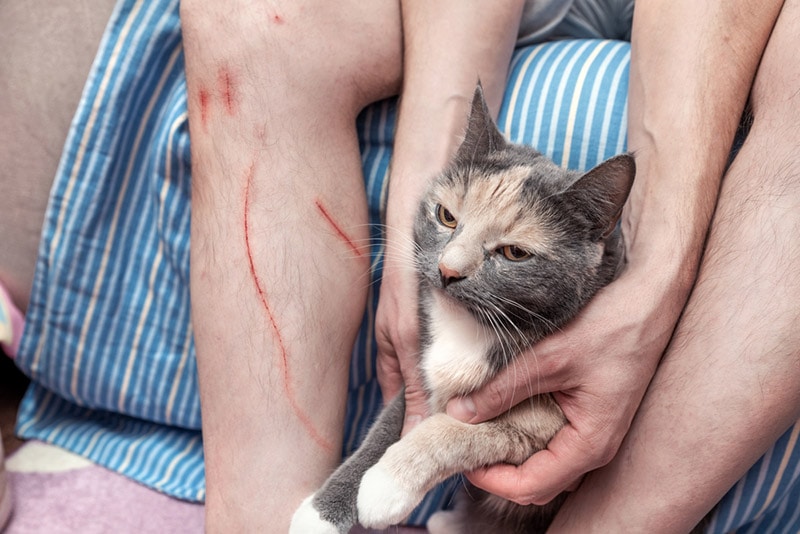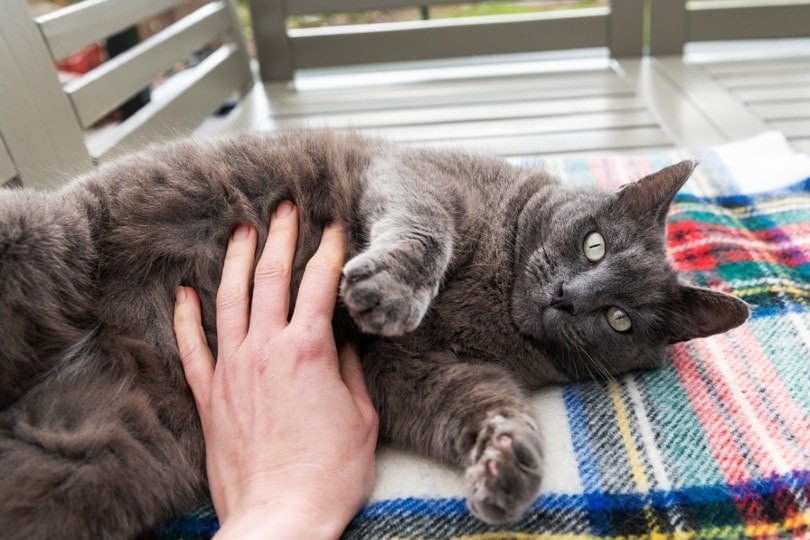Why Do Cat Scratches Burn? 3 Reasons & Care Tips
By Adam Mann
Updated on

If you’ve ever had a cat scratch you, you know how bad it hurts. You’ll often take a look at the scratch and marvel at how small it is compared to the amount of pain you feel. But why is this the case, and what should you do after they scratched you? We’re glad you asked because we’ve answered both of those questions for you below.
The 3 Reasons Why Cat Scratches Burn
1. They Often Don’t Draw Blood
One reason that cat scratches tend to hurt more than other types of scratches is that they’re often shallow scratches that don’t draw blood. While that might seem counterintuitive, blood actually acts as something that can help mitigate pain.
A shallow scratch that just barely doesn’t draw blood will likely hurt more than a scratch that goes just a smidge deeper.
2. They Pair With Allergies
Even if you don’t have severe cat allergies, you might suffer from minor cat allergies. While this isn’t a big deal most of the time, it can make your skin a bit more sensitive. You normally won’t notice it, but when a cat scratches you, it can make it hurt just a bit more.

3. There’s Dirt in the Claws
While cats get a lot of credit for their self-grooming habits, that doesn’t mean they’re perfectly clean creatures. In fact, their paws and claws often carry quite a bit of dirt and grime, and when they scratch you, this dirt and grime can make the scratch burn!
Treating Cat Scratches
If you’re trying to figure out why cat scratches so badly, it’s likely that a cat has already scratched you. With that in mind, it’s important to take the necessary steps to treat a cat scratch. While they’re usually just a little painful, if you don’t treat them correctly, they can turn into something far more serious.
1. Consider the Area Where You Were Scratched
If a cat scratches your eye, the treatment will be quite a bit different than if they scratch your arm. With that in mind, if a cat scratches an extremely sensitive area, we highly recommend reaching out to a medical professional right away to ensure you get the treatment you need.

2. Wash Out the Wound
Anytime you get an open wound, the first thing you need to do is wash it out. Use nothing but soap and water to clean out the wound, and thoroughly rinse it out before doing anything else. This is your best defense against infection, so take it seriously!
3. Apply an Antibiotic Cream
If you want a little more protection, applying an antibiotic cream is a wise choice. Not only does it help clean out the wound, but it also provides a barrier so nothing else can get into the wound once you clean it.
4. Watch for Infection
After you wash out the scratch and apply an antibiotic cream, the only thing left for you to do is monitor the wound for an infection. Signs of an infection include redness and swelling around the scratch area. If an infection happens, seek medical attention right away.
5. Consider a Trip to the Doctor
If you don’t know the cat that scratched you, then we highly recommend taking a trip to your doctor right away. That’s because stray and feral cats can spread diseases like rabies, and early medical intervention is your best course of action in these situations.

Final Thoughts
Now that you know why cat scratches hurt so much, all you can do is treat your current scratches and do your best to avoid them in the future. Ensure you treat any scratches right away though, and if things start to worsen, seek out professional medical help sooner rather than later.
Featured Image Credit: Zyabich, Shutterstock













